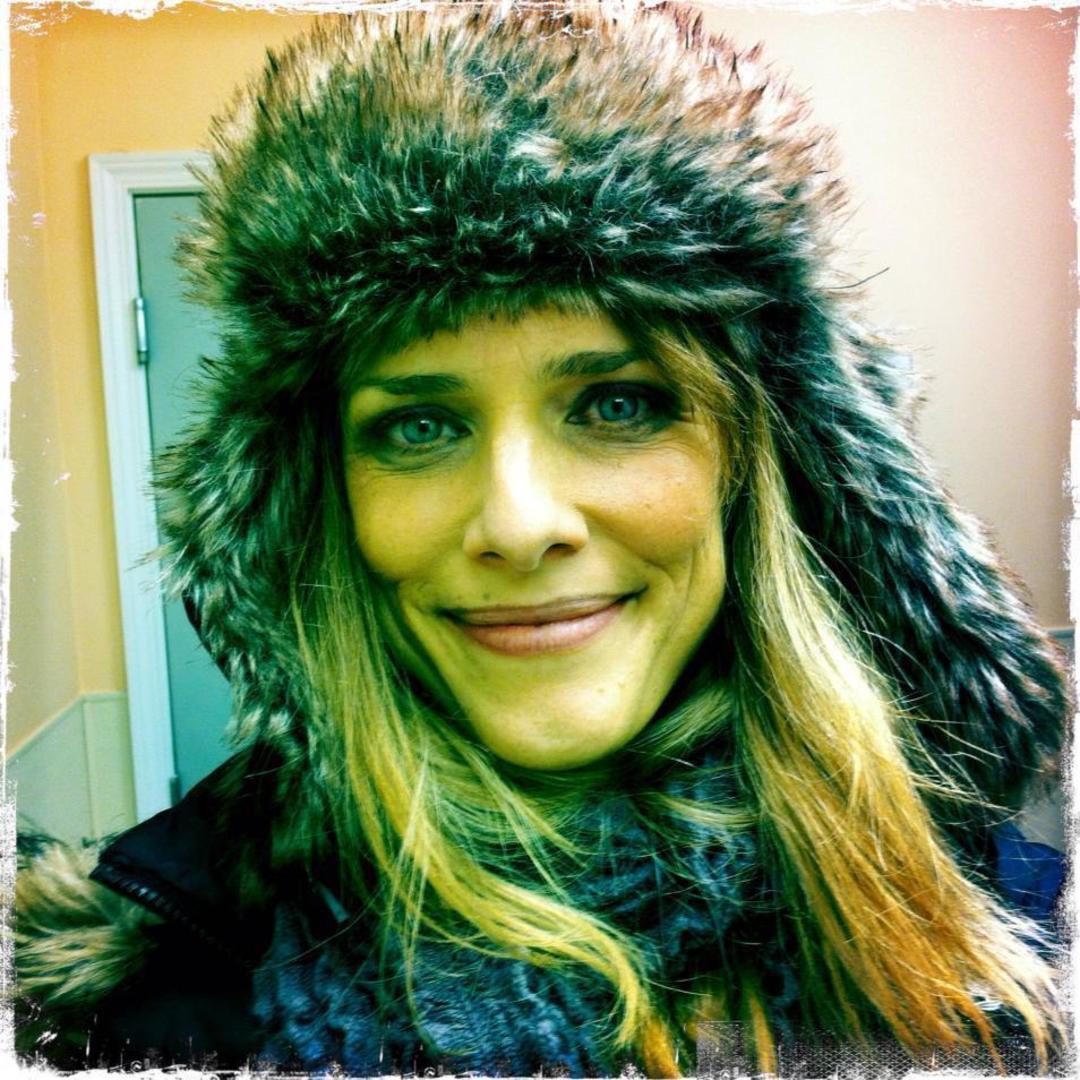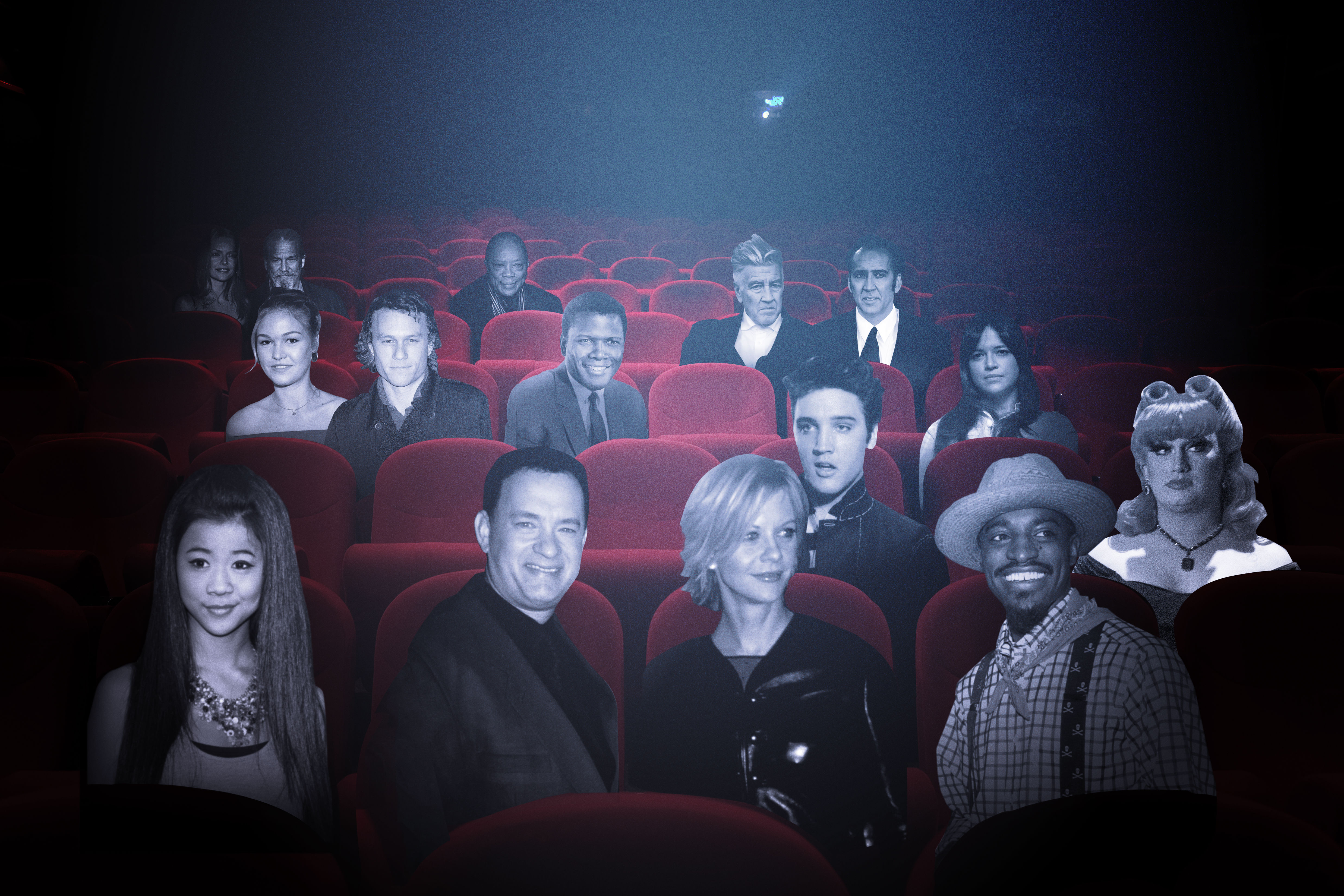A Fiendish Conversation with Lynn Shelton

Image: Courtesy Lynn Shelton
Writer and director Lynn Shelton isn’t afraid of confronting intimacy issues. That was certainly the case in her breakthrough film Humpday, which dealt with two buddies’ idea to make amateur porn together, and the theme arises again in Touchy Feely, her latest feature. Touchy Feely follows Abby (Rosemarie DeWitt), a free-spirited message therapist who goes into a tailspin when she suddenly develops a severe aversion to touching skin when she’s preparing to move in with her boyfriend. At the same time, Abby’s brother Paul (Josh Pais), an exceedingly dull dentist aided by his daughter Jenny (Ellen Page), becomes invigorated when he accidentally discovers has a healing touch that can cure TMJ. Touchy Feely opens at the Harvard Exit Theatre on Friday, September 13, and is currently available on video on demand.
For our latest Fiendish Conversation, we chatted with Shelton about crafting Touchy Feely's characters, working on bigger budget films, and her fascination with Seattle traffic.
How did the idea behind Touchy Feely come about?
It really started a few years back, when—after years of actually receiving many massages—I started to think about what it would be like to be on the other end—the giver. I think I was leaving a massage place one day as the previous client was coming out, and it just suddenly struck me that if you’re in the massage service, you’re presented with this string of naked bodies of complete strangers you would be expected to have this very intimate contact with. That seemed to be a very overwhelming idea to me. I wondered if somebody who does work intimately with the bodies of strangers ever reaches a threshold point and just can’t touch another body. Bodies are weird and skin is freaky, and if you let that reality come into your consciousness, I can see how you might suddenly be filled with revulsion. It just seemed like a very plausible idea to me. Plausible and also intriguing, because then once that happens, it kind of leads to a more universal question: “What do you do if you can’t do what you do anymore?” For a lot of us our occupations are really closely tied with our sense of self-worth and to our sense of identity, so if you lose that ability to do what you do, how do you deal with the aftermath of that?
Josh Pais is terrific as Paul in Touchy Feely. Was the role written specifically for him?
Josh had come to my attention with a film called Year of the Dog, which I found on DVD. He only has a few scenes, but he just struck me so hard. I just thought he was hysterically funny in this very subtle and singular kind of way. I became a kind of superfan. And then I had the opportunity to meet him three years ago at the Tribeca Film Festival. I told him what a fan I was, and he found out I directed Humpday and he was a big fan of that film, so we immediately decided that night that we had to work together someday. The idea of a character that ended up becoming Paul originally was going to be a whole different movie, but it just never quite jelled. As I was developing Touchy Feely, I realized this character I had been working on with Josh is all about somebody who sees themselves in a very particular, closed-off way and then is being given all this external validation that actually—evidence to the contrary—there’s a lot more to you than you think. In that kind of trajectory, I thought, “Oh, it’s like the opposite arch of what I’m mapping out for Abby,” and it would be this really interesting counterbalance. And then if you have these two—if they were siblings, and they really just had nothing in common personality-wise, I just think that seems like a beautiful point of friction to start a relationship. Then I thought, “Why would adult siblings spend any time together if they really don’t get along very well or are filled with judgment for each other?” and I came up with Ellen Page’s character, because I wanted there to be a kind of glue between them.
Tomo Nakayama from the local band Grand Hallway plays an important role in the movie. How did he end up in that part?
I met Tomo because a few years ago I worked on a web series for MTV called $5 Cover Seattle. I got to know a lot of musicians and a lot of local bands. He was playing at the time with the Maldives, and that was how I originally met him. I went to a performance at the Fremont Abbey several years ago now, and it was an all a cappella show; one of their Bare shows. It was the very first one I think, with the singers from the Moondoggies, the Maldives, and the Head and the Heart. But the last performer was Tomo, and he sang two songs, one of which was a Judy Garland number, “The Man that Got Away,” and it was—I swear to God—one of the most transcendent experiences I’ve ever had. Ever. It was incredible. It was like he became this genderless, angelic vehicle for this pure song. And I said to myself, “That voice in this state is going in one my films.” We had coffee a couple of times and I asked him how he felt about performing, if had he ever acted before, and he said, “Yeah actually, I’m really open to it, and I would love to do it.” Because I had this experience with $5 Cover where I would work with all these musicians and they acted—they were all non-actors, but they acted—and most of them did really well, I became convinced that most musicians have this innate comfort of being watched. They’re natural performers. I created a character that was based on Tomo basically, so I wasn’t asking him to do anything beyond his kin.
One of the things I always notice in your films is the way use use montages of Seattle views and traffic to transition between scenes. How do you feel like you use Seattle as a setting in your films?
It’s funny, I’ve grown up here, so Seattle has become this… there’s a layer of my brain that is Seattle. I don’t know how to explain it; it’s just embedded in me and in my being. When I’m writing, I always feel a little bit like I’m cheating because I know it so well that I’ll place a whole story—or a bunch of intertwining stories—in a very specific locale in my head. So I’m casting locations as carefully as I’m casting the actors in character roles, and each location is imbued with meaning. There’s a real specificity to it. For those montages and vistas, those have loomed large in my imagination and my mind’s eye forever. There’s a scene that takes place at the Louisa Boren lookout, at the top of Capitol Hill. I always knew I would use that in a film someday. It’s one of my favorite lookouts in Seattle. It’s just so stunning, and I really wanted to use it. As it turns out, it’s a terrible place to shoot a scene because it’s so noisy there. We had to fight with sound, but I’m so glad I shot that scene because I just had to shoot something there.
In terms of the traffic shots, there’s something kind of poetic and beautiful about traffic. You get to see the abstraction of all of these cars creating a single river if there’re enough of them. I think part of it is imagining that each of those vehicles has different occupants inside, all of whom have their own small dramas, their own narrative threads.
What up-and-coming filmmakers around Seattle should people keep an eye on?
Certainly Megan Griffiths, I don’t know how you could avoid her; she’s all over the place. SJ Chiro is a really interesting filmmaker, and she’s putting together her first feature now. She’s directed a number of shorts and has a very unique and compelling voice as a filmmaker. I just saw a short directed by somebody who’s been on my camera team a lot, Nate Miller. He’s got a really beautiful visual style and a very subtle hand with emotions. Mel Eslyn as well, who is a producer, writer, and director.
A really good thing to do is plug Local Sightings, which is about to happen at Northwest Film Forum, and that’s a great way to introduce yourself to new people. And I’ll go, and I’ll discover all kinds of people I had no idea existed. Just when I think I have a handle on every person in the film community—because it’s pretty small, relatively speaking—I’m always blown away by some production or creative artist that I didn’t even know was doing work in this town.
What are the best films you’ve seen in the past year?
I’m a giant fan of Ain’t Them Bodies Saints, which came out of Sundance this year. A lot of the films out of Sundance, actually—In a World..., Afternoon Delight, The Spectacular Now.
Has your filmmaking process changed now that you’re working on bigger budget projects?
It changes more project to project. What I mean by that is Touchy Feely was more expansive production-wise than the previous three films, which were essentially in one location, three different characters. In my latest film that I just shot and am now editing (Laggies)—my first multi-million dollar production and even more expansive—[there are] more characters, more scenes, more locations.
I can’t wait to scale back down again. I know I’m going to make tiny films again with very small crews and a very intimate set. And I know I’m going to do fully improvised films again. It’s sort of a balancing thing. I want to try something new, so I expand and react against working in a certain way. So I’ll do something, “Oh, this is great, now I want to go back and do something different than I just did.” But when I go and make an improvised film again, it’ll be a different experience than the last improvised films that I’ve made because I will have learned that much more. That’s what’s amazing—every time I work on a television show, every time I make a movie, I just learn so much. So I always feel like—I hope—I’m bringing that education to the project in some form or another.
Touchy Feely
Opens Sept 13, Harvard Exit Theatre, $8–$11




